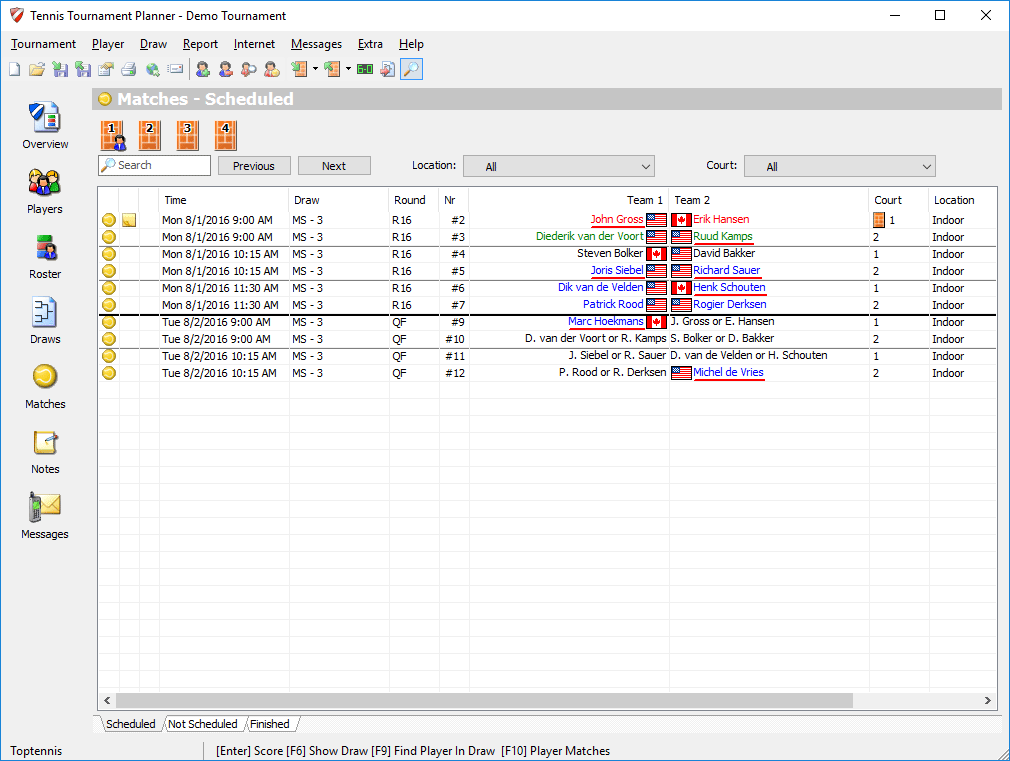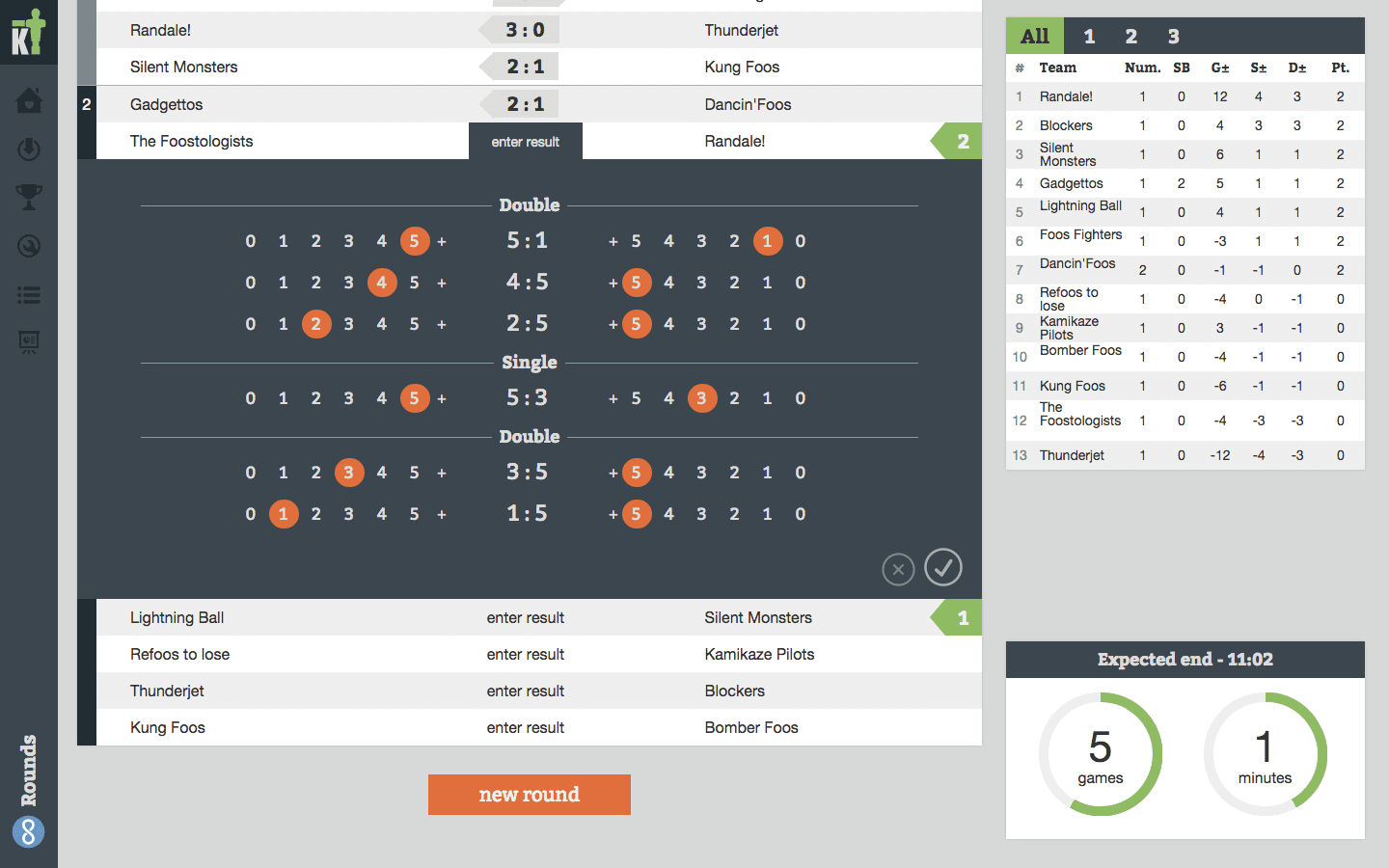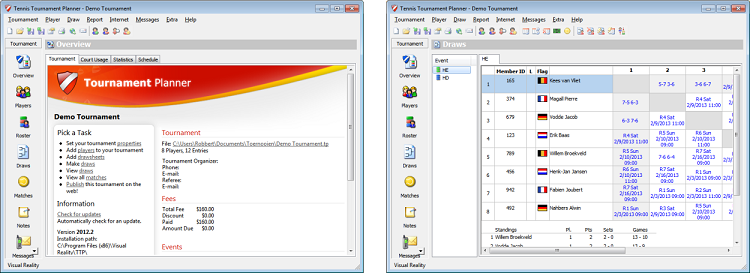tournament software is transforming the way competitions are managed, offering organizers and participants a streamlined and engaging experience from start to finish. With its user-friendly digital tools, the hassle of manual brackets and paper schedules is replaced by automation, real-time updates, and responsive platforms, making every event feel effortless and professional.
This technology has evolved from basic spreadsheets to intelligent platforms capable of supporting a variety of formats, user roles, and integrations. Whether you are organizing a local gaming night, a corporate tournament, or a large-scale e-sports event, tournament software adapts to your needs and elevates the entire experience. Today, it’s not just about keeping score—it’s about delivering a flexible, scalable, and immersive event for everyone involved.
Introduction to Tournament Software

Tournament software refers to digital platforms and applications specifically designed to manage, organize, and execute tournaments across various domains. Its core purposes include streamlining event scheduling, automating bracket generation, tracking participants and results, and delivering real-time updates to all stakeholders. Modern tournament software greatly reduces the administrative burden on event organizers and enhances the experience for players and audiences alike.
The evolution of tournament management has been significant, transitioning from manual record-keeping with paper brackets and spreadsheets to sophisticated, cloud-based solutions. Early tournaments relied heavily on handwritten score sheets and manual calculations, which were prone to error and inefficiency. As digital technology advanced, dedicated tournament platforms emerged, offering tools for automation and greater accuracy.
Tournament software is widely adopted in industries such as eSports, traditional sports leagues, academic competitions, gaming communities, and even corporate team-building events. Its versatile feature set allows it to support both local, small-scale events and large, international competitions.
Primary Purposes of Tournament Software
Tournament software provides several essential functions that support smooth event operations and enhance user experience. These include:
- Automating tournament brackets and match schedules
- Managing player registration and team assignments
- Tracking scores, results, and progression in real time
- Facilitating communication among organizers, participants, and spectators
- Generating reports and analytics for post-event review
Industries and Event Types Utilizing Tournament Platforms
A range of sectors have integrated tournament software into their event management workflows to optimize efficiency and professionalism. Common industries and event types include:
- eSports tournaments for games like League of Legends, Dota 2, and Valorant
- Traditional sports leagues, including soccer, basketball, and tennis
- Chess tournaments, academic quizzes, and debate competitions
- Company team-building contests and hackathons
- Community gaming nights and recreational events
Key Features of Tournament Software
Modern tournament software incorporates a comprehensive suite of features that simplify event management and deliver a seamless experience for all users. These functionalities are designed to handle everything from pre-event registration to post-event reporting, ensuring that each stage is efficient and user-friendly.
Common Features in Tournament Platforms
Most tournament management solutions offer a baseline of standard features, with some providing advanced tools for larger or more complex events.
| Feature | Description | Utility | Example |
|---|---|---|---|
| Automated Bracket Generation | Creates tournament brackets based on selected format and participants | Reduces setup time and minimizes errors | Single elimination brackets for eSports competitions |
| Online Registration | Enables players and teams to sign up and manage their profiles digitally | Simplifies entry process and participant tracking | Self-serve registration portals for open gaming tournaments |
| Live Scoring & Updates | Allows real-time input and display of match results | Keeps participants and spectators informed instantly | Scoreboards updating after each chess round |
| Reporting & Analytics | Generates data-driven insights and statistics about the tournament | Supports post-event evaluation and planning | Participation breakdown and win/loss records for team managers |
User Interface Design in Tournament Platforms
Effective user interface (UI) design is fundamental to the success of tournament software. A well-designed UI minimizes confusion, speeds up navigation, and reduces the learning curve for new users. Intuitive interfaces allow organizers to set up events without extensive training, while participants can easily find schedules, standings, and match results. Mobile-responsive layouts and clear visual hierarchies contribute to a positive user experience, making the software adaptable to different devices and user needs.
Types of Tournament Formats Supported

Tournament platforms are engineered to accommodate a variety of competition structures, catering to diverse event goals and participant numbers. Each format offers unique advantages and is best suited for particular types of competitions.
Popular Tournament Formats
The following list Artikels the most widely supported tournament formats, with a brief description and ideal use case for each:
-
Single Elimination: Each team or player is eliminated after a single loss, with winners advancing to the next round until a champion is crowned.
Best for: Fast-paced events with a large number of participants, such as fighting game tournaments. -
Double Elimination: Participants are given a second chance through a losers’ bracket, allowing one loss before elimination.
Best for: Competitive gaming events where fairness and redemption are valued, like major eSports finals. -
Round Robin: Every participant or team plays against every other, accumulating points or wins.
Best for: Small group competitions, chess clubs, or league stages where comprehensive matchups are desired. -
Swiss System: Participants are paired in each round based on their performance, without eliminating any team until the event concludes.
Best for: Chess tournaments and other strategy games with a moderate to large number of players.
Event Examples Suited for Each Format
Selecting the right tournament format can influence the pace, fairness, and excitement of an event. For example, single elimination is perfect for quick, high-drama gaming nights, while round robin may be the go-to for club leagues seeking maximum play opportunity. The Swiss system’s ranking-based pairings are ideal for events striving for balanced competition without the need for elimination brackets.
Advantages of Using Tournament Software

Shifting from manual processes to digital tournament platforms brings a host of operational benefits. These advantages range from reduced administrative effort to higher participant satisfaction and improved data management.
Operational Benefits of Digital Tournament Management
Automated tools and real-time dashboards empower organizers to focus on the event experience rather than logistics. Participants and audiences also benefit from transparent scheduling, instant results, and easy access to event information.
| Pros | Cons | Manual | Software-Based |
|---|---|---|---|
| Simple setup, low tech requirements | Prone to error, time-consuming updates | Paper brackets, handwritten scores | Automated scheduling, error checking |
| Hands-on control over process | Limited visibility for participants | Manual communication, delayed results | Real-time notifications, instant leaderboards |
| Minimal cost | Challenging to scale for large events | Small community events | National or international competitions |
Automation and Real-Time Updates
Automation ensures schedules, brackets, and scoring updates are generated instantly and accurately. Real-time updates keep everyone informed—from players to fans—reducing miscommunication and streamlining the flow of the event. This not only saves valuable time but also creates a professional atmosphere that can help elevate the event’s reputation and attract sponsorships.
Final Summary
As tournament software continues to advance, it opens up new possibilities for event organizers and participants alike. The flexibility, automation, and analytic power it brings ensure that tournaments of any size can run smoothly and professionally. By embracing these digital solutions, you can focus on what really matters: creating memorable, competitive, and fair events that everyone enjoys.
Questions Often Asked: Tournament Software
What types of events can use tournament software?
Tournament software is suitable for sports, esports, board games, academic competitions, and corporate events—any scenario that requires structured competition and tracking.
Do I need technical skills to manage tournaments using software?
Most modern tournament software is user-friendly and designed for people with little to no technical background, offering guided setup and intuitive interfaces.
Can tournament software handle online and offline events?
Yes, many platforms support both online and in-person tournaments, including hybrid formats, with tools for registration, scheduling, and communication.
Is there an option to customize tournament rules and branding?
Most tournament software offers customization for rules, branding, and layouts, so you can tailor the platform to fit your event’s specific requirements.
How secure is participant data on tournament platforms?
Leading software providers implement robust security protocols and comply with industry standards to ensure user data is protected and confidential.
